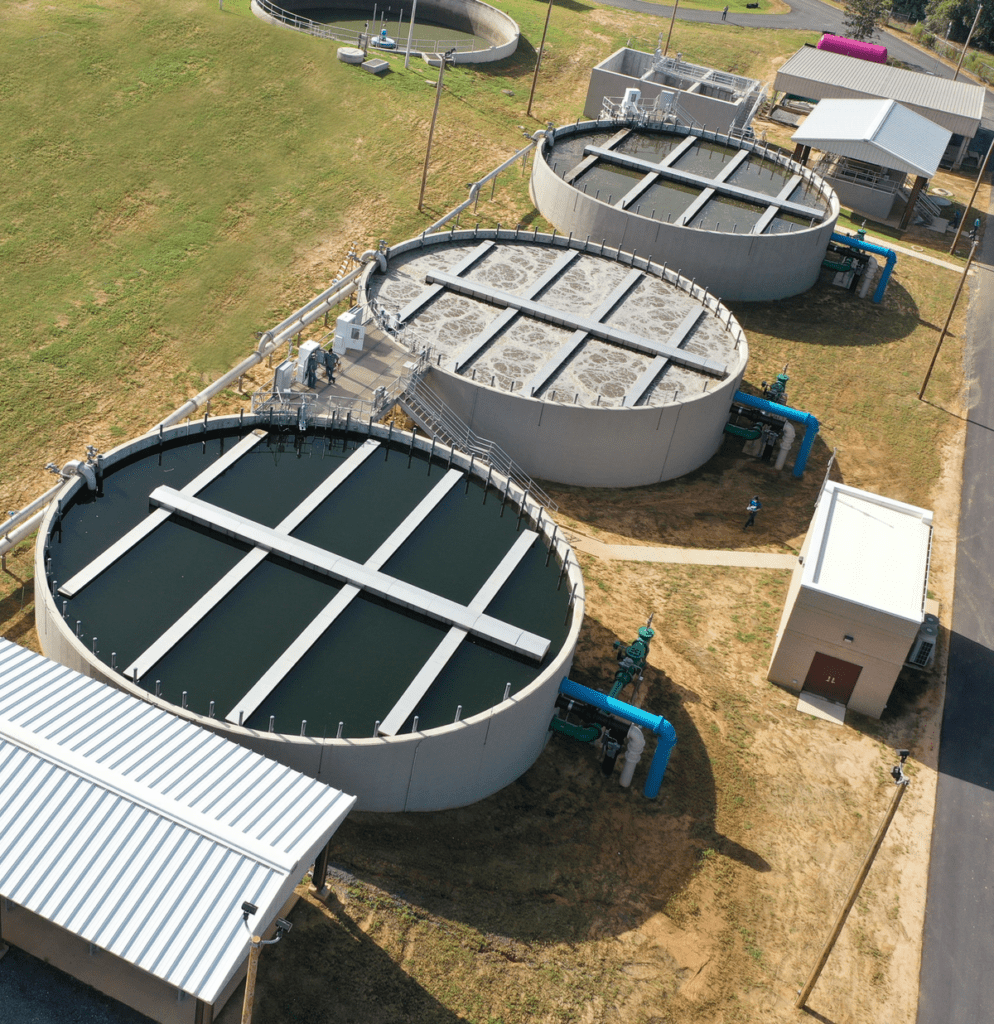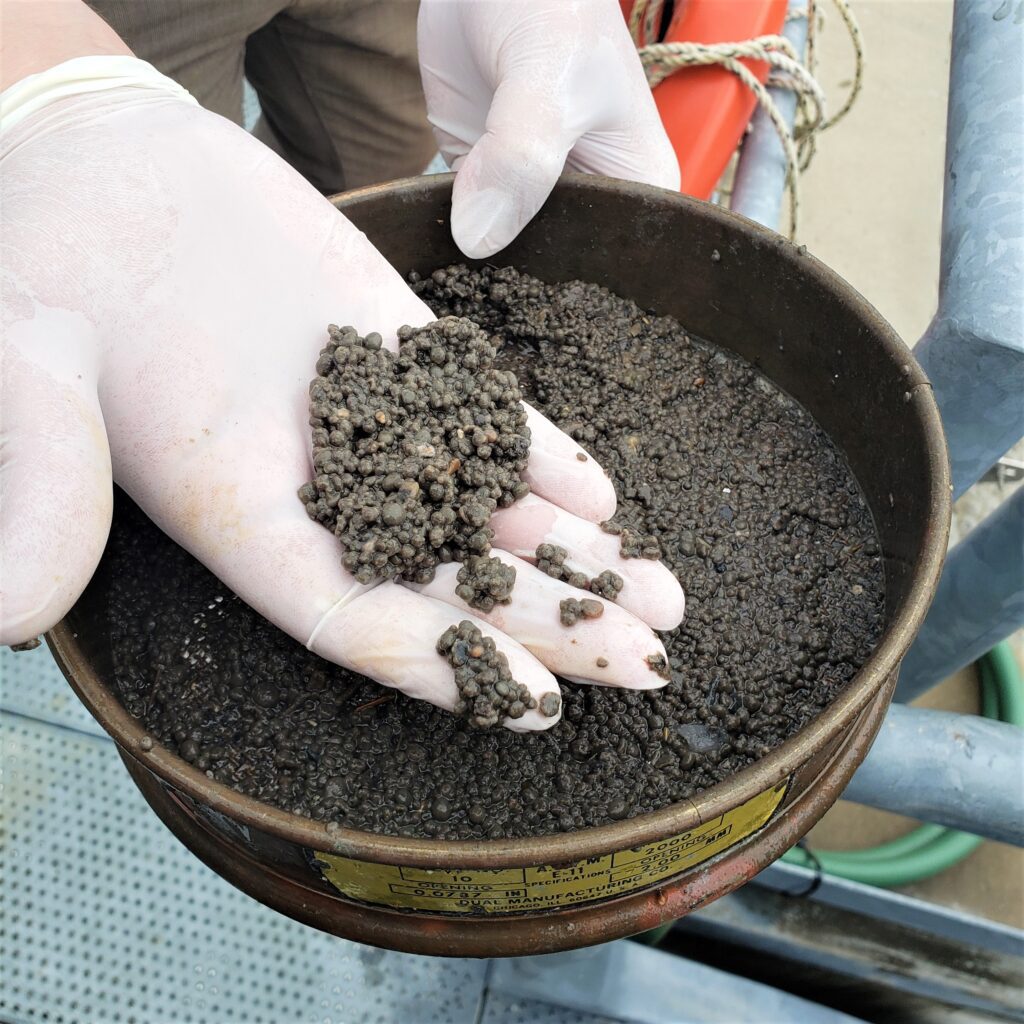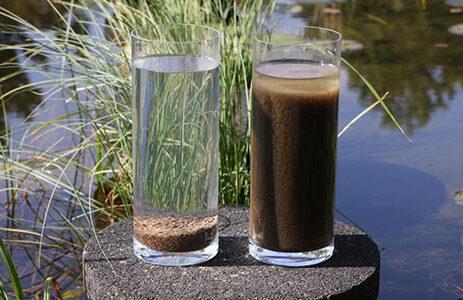AquaNereda by Aqua-Aerobic Systems
AquaNereda by Aqua-Aerobic System is an advanced biological wastewater treatment technology providing Enhanced Nutrient Removal (ENR) with Total Nitrogen <3mg/L and Total Phosphorus <1mg/L without chemicals. The technology has been used successfully for over 15 years in full-scale wastewater treatment facilities, with over 80 installations worldwide.
The technology was developed through a collaboration between the Dutch engineering consultant Royal HaskoningDHV and the prestigious Delft University of Technology, with expertise in biological treatment processes and innovative engineering.
Aerobic Granular Sludge Process
AquaNereda is an advanced aerobic granular sludge process that produces robust granules made entirely of biomass. These granules efficiently carry out both nitrification and denitrification, while also biologically reducing phosphorus to low levels without the need for chemicals. A key feature of aerobic granular sludge is its rapid settling ability. Due to the high density, the biomass settles much faster than traditional activated sludge.
The Nereda process has several advantages over traditional wastewater treatment technologies. It uses less energy and chemicals, produces less sludge, and has a smaller carbon footprint. It possesses a higher treatment capacity and accommodates various wastewater types, such as municipal and industrial wastewater.


Key Features and Benefits of the Aerobic Granular Sludge Process
- Small Footprint
- Proven enhanced nutrient removal (ENR)
- Up to 50 percent energy savings
- Excellent settling
- No chemical addition
- Resilient to fluctuations in pH, toxic shocks, loadings, and flows
- Easy operation with fully automated controls
- Low capital costs and low life cycle costs
- Municipal and industrial applications
- Suitable for new construction and retrofits, small and large plants
In North America, a major success was the startup of the Wolf Creek WWTP in Foley, Alabama. The three-basin plant treats domestic wastewater and has a design capacity of 3.5 million gallons a day (MGD) on average, with a 6-MGD peak. Within 30 days, the plant was meeting strict effluent requirements.
Read about the Wolf Creek WWTP project in Foley, Alabama, here.
Review a great slide presentation on the AquaNereda process here.
Watch AquaNereda Video

AquaNereda Demonstration Facility
The AquaNereda demonstration facility at the Four Rivers Sanitation Authority in Rockford, IL, is a pilot-scale plant using Nereda technology for wastewater treatment. It was built in 2016 as a joint project between the City of Rockford and the University of Illinois at Urbana-Champaign to test the effectiveness of the AquaNereda process in cold weather conditions. The facility has a treatment capacity of 150,000 gallons per day and has successfully demonstrated the feasibility of the AquaNereda technology in the United States.
Conclusion
AquaNereda’s ability to deliver high-quality effluent with significantly reduced nutrient levels makes it ideal for meeting increasingly stringent environmental regulations, especially in regions with sensitive water bodies. Its application has been successful in diverse settings, from municipal to industrial wastewater treatment, providing reliable, sustainable, and cost-effective solutions for wastewater treatment. Furthermore, AquaNereda’s operational flexibility and minimal space requirements make it well-suited for new installations and retrofitting existing facilities, providing an adaptable and scalable solution for wastewater treatment challenges.
Contact Envirep about AquaNereda
Envirep/TLC serves the municipal and industrial water and wastewater market in Pennsylvania, New Jersey, Maryland, Delaware, the District of Columbia, Virginia, and West Virginia.
Do you need help selecting the right equipment for your application? Contact Envirep at 717-761-7884 or sales@envirep.com.
By Michael Gillespie, President at Envirep/TLC


